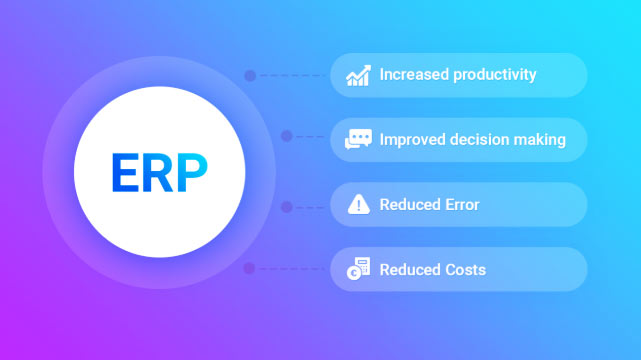Traditionally the textile industry is highly concerned with the design or manufacture of clothing as well as the supply and use of textiles. However, the industry has been transformed extremely in the last couple of years.
Flexibility and rapid response have become essential qualities for any effective textile business. Achieving the dynamic management of the entire organization is a must.
Enterprise Resource Planning (ERP) is a framework that coordinates all offices and capacities across a business into a solitary framework while as yet serving every division's particular necessities. It is intended to assist organizations with settling on more brilliant choices, serve their clients better and work all the more effectively by and large via mechanizing processes and workflows.
E-resource ERP provides a framework within which textile industries can organize their business and manufacturing know-how to create a vital management resource. Of course, industry decision-makers have to have rapid access to company data.
ERP is first and foremost a means of saving time and it does this by automating processes that tend to be un-useful.
In a review distributed on IGI Global, results show that ERP software systems offer plenty of operational, strategic, and organizational benefits. This reaches from decreasing expenses and shortening process durations to further developing stockpiling the board and normalizing work processes.
On top of these, ERP software systems offer various theoretical advantages like higher representative assurance and better organization picture. No wonder many companies implement ERP systems to improve their business performance (64%) and position their company for growth (57%). These software solutions serve as comprehensive tools that let top management integrate the different aspects of their operations in one convenient platform. ERP systems have practical uses for different kinds of businesses because of the many tools they have to offer.
It can maintain the benefits of a standard package with a high level of adaptability, ensuring that the solution can be tailored to almost any requirement. Its modules could be configured to the needs of any textile business, whatever its size.
However, not all companies require all the features of an ERP suite. So, these platforms may be more beneficial to some industries than others. More often than not, those who can maximize these tools are businesses that tackle multiple tasks every day using different software solutions.
No doubt, ERP systems are indispensable tools for all types of businesses that require different tools for various operational tasks. In order to further understand its features, we have compiled some of the many pain points that these platforms can solve.
But some misconceptions about ERP systems are that just because a majority of the ERP solutions out there are created for large firms doesn’t mean that small or medium-sized companies can’t take benefit from it.
ERP is a necessity for manufacturers, large and small, and can aid in overseeing production as well as helping plant managers make decisions pertaining to their manufacturing operation.
With all of the benefits associated with ERP, there are also various limitations. Like:
• Expensive System
• Customization of ERP setup is limited
• High Implementation Times
The modern business landscape has increasingly become fast-paced, making it difficult for enterprises to keep up. By using ERP systems, you can not only accelerate your operations but also become more efficient in achieving your business goals. Now that you know why an ERP system is important to your company, all you need to do is find one that suits your business model.



